Unlocking Success: The Crucial Role of Mentorship in Online Learning Platforms
Title: Maximizing Online Learning through the Lens of Mentorship The dawn of the digital age has revolutionized various facets of life, including the sphere of education. The surge in the popularity of online learning platforms has made it easier than ever for individuals worldwide to access quality education. But, as exciting as the digital education landscape might come across, it also presents unique challenges, such as the lack of personal attention and guidance often available in traditional classroom settings. That's where mentorship steps in as a critical component of the online learning experience. Mentorship, in the context of online learning platforms, is about establishing a relationship between an experienced individual (the mentor) and a learner. The primary role of the mentor is to provide guidance, support, and feedback, enabling learners to achieve their learning goals more efficiently. One of the key roles of mentorship in online learning is to augment the social aspect of learning. One of the challenges in online learning is the isolation that learners often feel due to the lack of person-to-person interactions, reducing the engagement and motivation levels. However, an effective mentor can fill this gap. By providing timely feedback, answering queries, and encouraging discussions, mentors can create an interactive learning environment that fosters a sense of community among learners. Mentorship also plays a critical role in personalizing learning experiences. Unlike traditional brick-and-mortar schools, where one-size-fits-all, online learning platforms offer flexibility and self-paced learning. While this freedom can bring numerous benefits, it can also result in learners feeling overwhelmed or lost due to the lack of structure. A mentor can guide learners in creating a structured learning plan, tailored to their unique needs and pace. By setting attainable goals and milestones, mentors can enhance learners' understanding and retention of course content. Maintaining motivation is another challenge faced by online learners. The lack of immediate rewards and recognition can often lead to decreased learner motivation. Here again, mentors can make a significant difference. By offering recognition for accomplishments, providing motivation during tough periods, and coaching on overcoming learning obstacles, mentors can help learners remain focused and committed to their learning journey. Lastly, the role of mentorship is invaluable when it comes to skills application. Online courses often equip learners with a myriad of skills. However, applying these skills in real-world situations can be daunting. Mentors, who often bring industry experience to the table, can provide insight into using these newly-acquired skills in practical scenarios. This bridge from theory to practice enriches the learners' understanding and practical know-how. In conclusion, the importance of mentorship in online learning platforms is multi-faceted. A mentor not only supports a learner throughout their journey but also significantly enhances the quality and effectiveness of the online learning experience. Whether it's creating an engaging and interactive learning environment, personalizing learner experiences, keeping motivation levels high, or bridging the gap between theory and practice, mentorship is a driving force that can empower learners to maximize their potential in the digital education landscape. Therefore, realizing the necessity for effective mentor-mentee relationships, many online learning platforms are now incorporating mentorship programs into their learning models. The blend of technology and human interaction is proving to be a winning combination for enhancing learning experiences, setting a promising precedent for the Future of Education.

Title: Maximizing Online Learning through the Lens of Mentorship
The dawn of the digital age has revolutionized various facets of life, including the sphere of education. The surge in the popularity of online learning platforms has made it easier than ever for individuals worldwide to access quality education. But, as exciting as the digital education landscape might come across, it also presents unique challenges, such as the lack of personal attention and guidance often available in traditional classroom settings. That's where mentorship steps in as a critical component of the online learning experience.
Mentorship, in the context of online learning platforms, is about establishing a relationship between an experienced individual (the mentor) and a learner. The primary role of the mentor is to provide guidance, support, and feedback, enabling learners to achieve their learning goals more efficiently.
One of the key roles of mentorship in online learning is to augment the social aspect of learning. One of the challenges in online learning is the isolation that learners often feel due to the lack of person-to-person interactions, reducing the engagement and motivation levels. However, an effective mentor can fill this gap. By providing timely feedback, answering queries, and encouraging discussions, mentors can create an interactive learning environment that fosters a sense of community among learners.
Mentorship also plays a critical role in personalizing learning experiences. Unlike traditional brick-and-mortar schools, where one-size-fits-all, online learning platforms offer flexibility and self-paced learning. While this freedom can bring numerous benefits, it can also result in learners feeling overwhelmed or lost due to the lack of structure. A mentor can guide learners in creating a structured learning plan, tailored to their unique needs and pace. By setting attainable goals and milestones, mentors can enhance learners' understanding and retention of course content.
Maintaining motivation is another challenge faced by online learners. The lack of immediate rewards and recognition can often lead to decreased learner motivation. Here again, mentors can make a significant difference. By offering recognition for accomplishments, providing motivation during tough periods, and coaching on overcoming learning obstacles, mentors can help learners remain focused and committed to their learning journey.
Lastly, the role of mentorship is invaluable when it comes to skills application. Online courses often equip learners with a myriad of skills. However, applying these skills in real-world situations can be daunting. Mentors, who often bring industry experience to the table, can provide insight into using these newly-acquired skills in practical scenarios. This bridge from theory to practice enriches the learners' understanding and practical know-how.
In conclusion, the importance of mentorship in online learning platforms is multi-faceted. A mentor not only supports a learner throughout their journey but also significantly enhances the quality and effectiveness of the online learning experience. Whether it's creating an engaging and interactive learning environment, personalizing learner experiences, keeping motivation levels high, or bridging the gap between theory and practice, mentorship is a driving force that can empower learners to maximize their potential in the digital education landscape.
Therefore, realizing the necessity for effective mentor-mentee relationships, many online learning platforms are now incorporating mentorship programs into their learning models. The blend of technology and human interaction is proving to be a winning combination for enhancing learning experiences, setting a promising precedent for the Future of Education.










































































































































































![[The AI Show Episode 142]: ChatGPT’s New Image Generator, Studio Ghibli Craze and Backlash, Gemini 2.5, OpenAI Academy, 4o Updates, Vibe Marketing & xAI Acquires X](https://www.marketingaiinstitute.com/hubfs/ep%20142%20cover.png)



























































































































![[DEALS] The Premium Learn to Code Certification Bundle (97% off) & Other Deals Up To 98% Off – Offers End Soon!](https://www.javacodegeeks.com/wp-content/uploads/2012/12/jcg-logo.jpg)


![From drop-out to software architect with Jason Lengstorf [Podcast #167]](https://cdn.hashnode.com/res/hashnode/image/upload/v1743796461357/f3d19cd7-e6f5-4d7c-8bfc-eb974bc8da68.png?#)








































































































.png?#)


































_Christophe_Coat_Alamy.jpg?#)
 (1).webp?#)






































































































![iPhone 17 Pro Won't Feature Two-Toned Back [Gurman]](https://www.iclarified.com/images/news/96944/96944/96944-640.jpg)
![Tariffs Threaten Apple's $999 iPhone Price Point in the U.S. [Gurman]](https://www.iclarified.com/images/news/96943/96943/96943-640.jpg)





































































































































